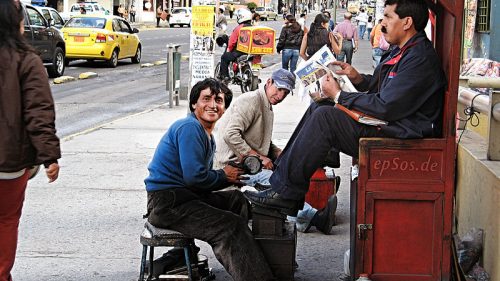Different factors divide society: money, race, culture, religion, values and education despite the advent of connectivity and campaigns on acceptance of diversity. Despite the emergence of progressive thinking, numerous people will always create an affinity to something familiar and closer to their characteristics and history, and this is completely fine. It is fundamental human right. Because diversity is a part of your culture, it is wise to be critical of one’s behaviors, which may seem harmless and innocent at first glance but would turn out disrespectful to others. One good example is the importance of coming to terms with your idea of class privilege and deconstruct your expectations about friends who come from poor and work-class backgrounds concerning financial wealth.

Understand the difference between being penniless or just being the poor or working class.
It is essential to fathom the stark difference between being broke and being in a constant predicament with few or no economic protection to rely on in times of desperation. There is a disparity between having a limited amount of money in your early adulthood and feeling awful having to borrow money from your parents as compared to the danger of losing your apartment because you are unable to pay on time. Still, you are sending money to your family to pay their bills. Where is the logic there? It is quite insensitive glamorizing the lives of people without money, talking about how cool it is to go thrift shopping as a way to boycott corporate America, without realizing that the poor and working-class people often don’t have a choice.
Don’t assume about people’s relationship with money.

When meeting up with a friend who might have less money than you, you should consider whether the expenses incurred is within their means or financial damaging. There are always fun ways to hang out with your friends without spending a lot of money. Try considering sleepovers and hangouts at home.
Don’t expect poor and working-class friends to do emotional labor for you around money.
Are you seething that your money is a bit short this month despite your family being wealthy or your monthly income is above the average? It is best not to rant about this concern with friends who are not wealthy. Are you planning an expensive Spring break vacation? Seek out the help of friends with comparable economic background and ask them for sources and support about these concerns. It will ultimately save a right amount of heartache for your poor and working-class friends.
Examine subtle messages you have absorbed about what it means to be poor and working-class.
Every one of us living in this commercial society has internalized negative messages about the poor. Poor and the working-class people are often labeled as “lazy” and undeserving. Thus, it creates a stigma for communities with low-income capacity. We cannot view other people’s lives under the falsehood of meritocracy where each effort yields personal successes.
Re-think your social media behavior.

Millennials are fond of posting their activities on any social media platform. Their grand vacations, the food they eat, outfit of the day, or even the things they just bought. Think twice if you are doing this. You may hit the mark with some of your friends, and this can be insensitive and disrespectful on their side.